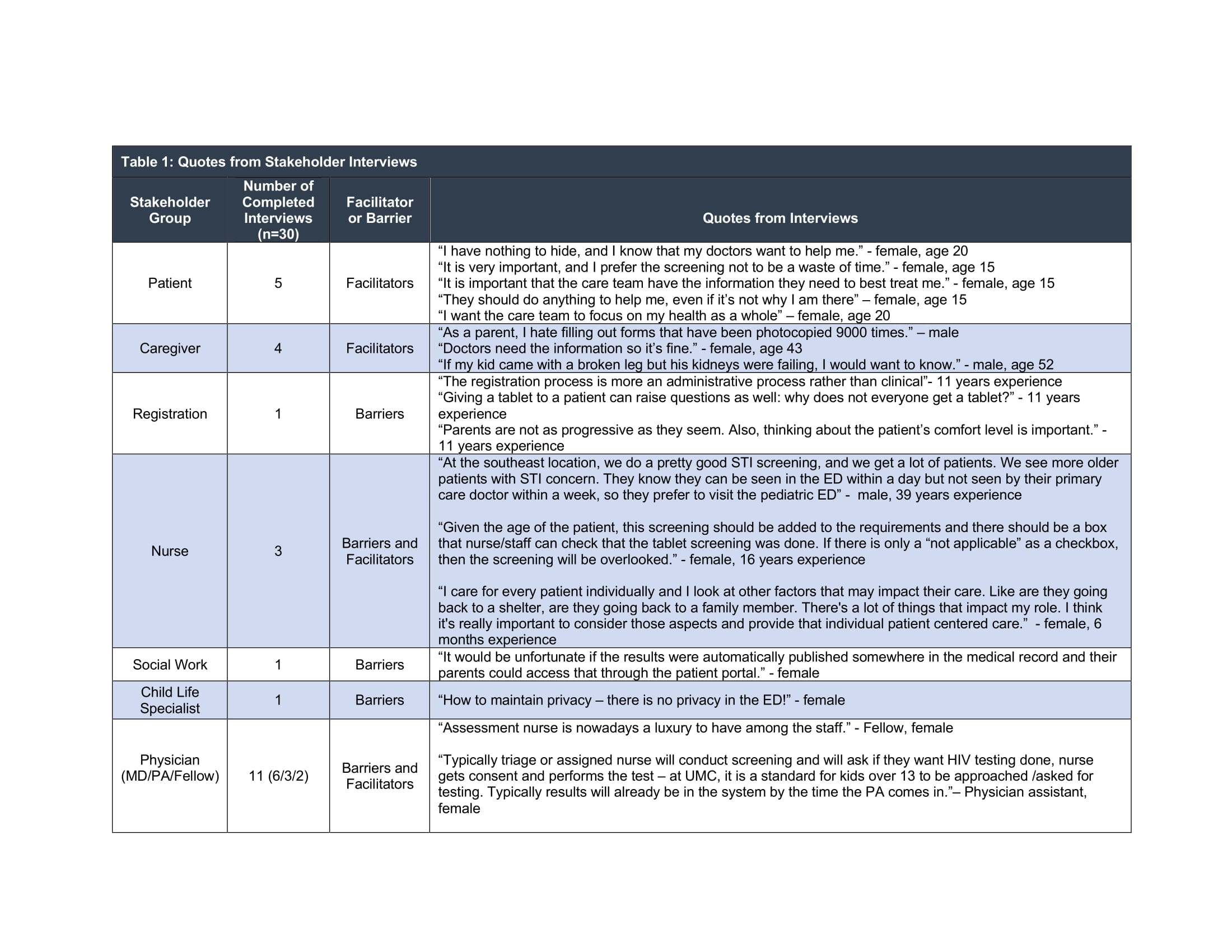Emergency Medicine: All Areas
Emergency Medicine 15
388 - Assessing the Feasibility of Patient-Facing Electronic Sexually Transmitted Infection (STI) Screening in an Urban Pediatric Emergency Department
Monday, May 1, 2023
9:30 AM - 11:30 AM ET
Poster Number: 388
Publication Number: 388.406
Publication Number: 388.406
Danielle Foltz, Children's National Health System, Washington, DC, United States; Monika Lemke, Children's National Health System, Westminster, MD, United States; Laura C. Schubel, MedStar Health Research Institute, Washington, DC, United States; Deanna Busog, MedStar Health, Bowie, MD, United States; Azade Tabaie, MedStar Health Research Institute, Washington, DC, United States; Gia M. Badolato, Children's National Health System, Washington, DC, United States; Kristen E. Miller, MedStar Health National Center for Human Factors in Healthcare, Washington, DC, United States; Monika Goyal, Children's National Medical Center, Washington, DC, United States
.jpg)
Danielle Foltz, BA (she/her/hers)
Clinical Research Assistant
Children's National Health System
Washington, District of Columbia, United States
Presenting Author(s)
Background: Adolescents seeking care in emergency departments (EDs) are at risk for sexually transmitted infections (STIs). The ED visit offers a strategic venue for broad-scale screening and treatment but optimization of STI screening requires thoughtful investigation of clinician workflow, patient acceptance, and integration into the electronic health record (EHR).
Objective: To understand how use of electronic questionnaires integrated into the EHR to drive patient-centered sexual healthcare can be effectively implemented in the ED.
Design/Methods: We applied a human factors framework to develop a process for broadscale STI screening in a pediatric ED. This mixed methods approach included stakeholder interviews and clinical observations that were conducted as part of a larger study addressing racial and ethnic inequities in STI detection and treatment. Thematic analysis of interview responses and observational findings was used to create workflow models, process maps, and recommendations for STI screening implementation.
Results:
Thirty stakeholder interviews were conducted with an interdisciplinary group, including patients, caregivers, physicians, nurses, health information technology (health IT) experts, social workers, child life specialists, and registration staff. Interviews were conducted until thematic saturation. Twenty ED workflow observation sessions (80 hours total) were completed across five stakeholder groups (patients, caregivers, physicians, nurses, and registration).
The stakeholder interviews revealed general acceptance of STI screening in the ED but expressed concerns about the logistics given persistent challenges in staffing and patient surge. Identified barriers to screening included privacy; sensitivity of the topic; patients’ level of comfort in using technology and answering questions about their sexual history; language and literacy barriers; staffing concerns; cognitive overload of health providers; and tablet availability and security.
Workflow observations revealed implementation of the STI screening at the point of triage, where ED patients are assessed to determine acuity and chief complaint, as the recommendation.
Conclusion(s): This study highlights a rigorous process for assessing the feasibility and acceptability of broadscale STI screening in the pediatric ED and provides a recommendation for implementation. Our research provides insight for barriers to future health IT integrations in ED workflows and could be used to drive design and implementation strategies for other patient-centered initiatives.



